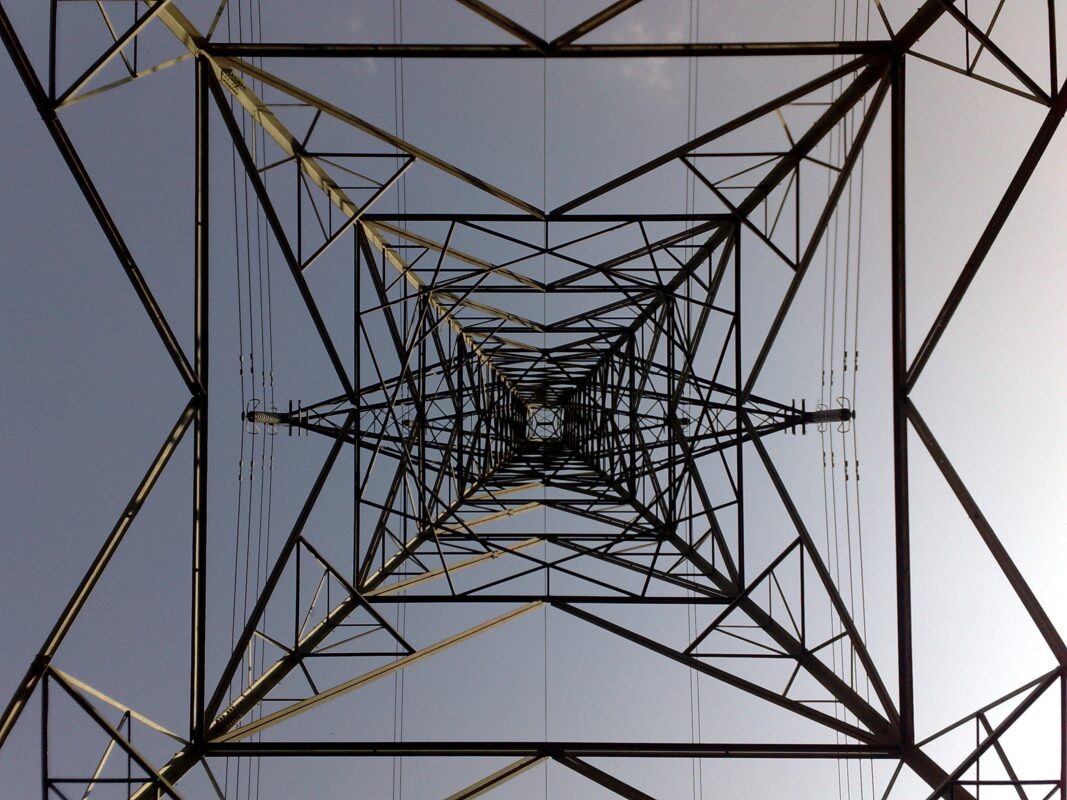On Tuesday 5th November 2024 we held a data dive in collaboration with Electricity North West Limited (ENWL) – the North West of England’s Distribution Network Operator (DNO), and Kraken – an energy-tech company that automates and optimises the energy supply chain, brought together various stakeholders to explore and discuss data made available on ENWL’s open data portal, and other data that might be available. Its purpose to foster collaboration and generate new ideas for data utilisation in the electricity and sustainability sector.
After brief presentations outlining the types of electricity data made available as open data, participants were grouped according to interest who went on to explore the data and discuss related ideas and topics.
The discussions began with a focus on Net Zero initiatives and energy efficiency measures. ENWL shared their approach to achieving Net Zero targets, including their internal energy usage monitoring and fleet management strategies. A significant portion of the conversation centred on how to incentivise customers to make smarter energy choices, with particular attention paid to domestic energy usage patterns and the potential for synchronising customer activities with network changes coordinated by DNOs and energy suppliers.
Network capacity and infrastructure planning emerged as a crucial theme throughout the event. Participants explored how network capacity evolves and discussed the challenges of aligning network capacity with generation capacity planning. The conversation encompassed both strategic capacity planning and resilience considerations, particularly in light of climate change implications for critical infrastructure. The integration of transport electrification with network planning generated substantial interest, especially regarding the impact of EV charging on traffic patterns and infrastructure requirements.
Data access and sharing proved to be a significant point of discussion. Stakeholders examined the available data for community solar PV installations and identified several areas for improvement in the user interface, particularly regarding postcode searches and location identification. There was considerable interest in cross-DNO data sharing opportunities, especially for areas that lie on boundary regions. Participants proposed the creation of national datasets by combining information from different DNOs and suggested standardising data sharing using consistent geographic levels such as statistical geography LSOAs (Lower Super Output Areas) and MSOAs (Middle Super Output Areas).
The integration of smart meter technology featured prominently in discussions. A participant demonstrating that they could ‘ping’ their smart meter and read its status in real-time sparked conversations about privacy considerations and customer access to consumption data. Participants explored how smart meter data could be better integrated into infrastructure planning whilst maintaining appropriate privacy safeguards.
Independent Networks and multi-utility collaboration formed another key strand of discussion. Participants examined the role of Independent Distribution Network Operators (IDNOs) and their nationwide operations, highlighting the need for improved visibility of IDNO locations within DNO areas. Cross-sector data sharing between energy providers, water companies, and local authorities was identified as a crucial opportunity for improvement, along with the potential for hosting third-party data on the ENWL open data portal.
The role of Independent Distribution Network Operators (IDNOs) formed another key strand of discussion. Unlike regional Distribution Network Operators (DNOs) which operate within fixed geographical boundaries, IDNOs can operate nationwide. This creates challenges around network visibility and coordination. Participants highlighted the need for better mapping of IDNO locations within DNO areas and improved data sharing when generators connect to IDNO networks. The potential for cross-sector data sharing between energy providers, water companies, and local authorities was identified as a crucial opportunity for improvement, along with the potential for hosting third-party data on the ENWL open data portal.
Community energy and resilience planning generated significant interest, particularly regarding the role of community energy during unplanned power cuts. Discussions covered support for local authority fleet charging, consideration of central services power requirements, and the development of microgrids with solar PV and battery storage. The integration of heating and hot water systems within these community energy schemes was also explored, especially with the need for social housing providers to provide more cost efficient and sustainable supply and heating services for their tenants.
Future planning discussions emphasised the importance of combining different data sources for better decision-making. Participants suggested cross-referencing network capacity data with open Energy Performance Certificate (EPC) data to better understand potential capacity requirements based on building types. For example, knowing that a street consists mainly of three-bedroom semi-detached houses could help predict likely electrical capacity needs for future heat pump and EV charging installations. This kind of detailed property analysis was seen as crucial for optimising network development for 21st-century requirements..
The event concluded with several clear recommendations for improvement, including enhancing the data portal’s functionality, developing cross-DNO data sharing initiatives, and establishing standardised reporting templates. Participants emphasised the importance of knowledge sharing between local authorities and the development of best practices for local priorities. The integration of transport and electricity network planning, along with the consideration of charging behaviour patterns, emerged as key priorities for future infrastructure development.
Throughout the discussions, there was a strong emphasis on collaborative approaches to data sharing and infrastructure planning, highlighting the interconnected nature of modern energy systems and the importance of coordinated action across different stakeholders and sectors.
Next steps
There is follow on meeting to bring together organisations who are interested in forming an Energy Coalition to bid for future energy projects with Manchester City Council taking place on the morning of Wednesday 20th November 2024 and interested people should contact Sam Milson at Sam [at] opendatamanchester.org.uk
There is also interest in building on this initial meeting to further develop ideas for collaboration. If this is of interest get in touch.

